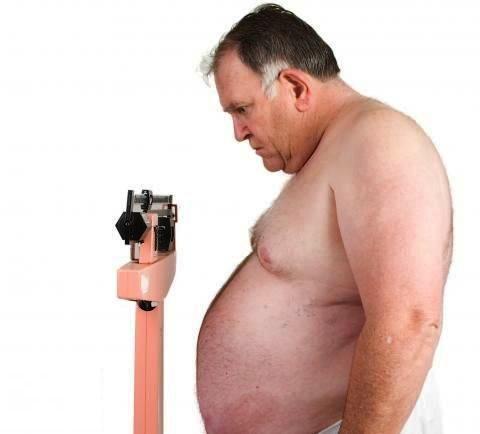10 Questions to ask before implementing HR for small business

So you're a small company and you want to implement HR for small business. You know, to achieve all those fancy HR-speak goals like aligning your human capital with strategic initiatives. Increase performance and productivity. Become an employer of choice. Introduce KPI's. Well, good on ya! Intention and conviction are the first steps. And also by far the easiest.
Often, small businesses don't exactly know what they want or what they are getting into. This post is meant to help manage some expectations about the HR for small business promised land. Because implementing HR for small business is very similar to embarking on a diet and exercise program.
A Human Resources Tale
Here's an HR for small business tale that is often being told in a company near you. It goes something like this:
- Company top dog meets a successful CEO who attributes his business success to ingenious HR practices including daily huddles, free bananas and Koolaid; or
Company top dog reads a business book that inspires them. Say, 'Good to Great', Jack Welch's 'Winning', or 'Steve Jobs'. Something that includes buzz words such as 'employee engagement', 'A players', 'cool or tough cultures', 'excellence', or 'KPI's'. - Referring back to the getting fit analogy, the successful CEO is that old friend you meet who just lost a ton of weight, looks fantastic and just finished a new health and fitness program that he's promoting. <If he can do it, I can do it.>
- The business book is that magazine you're flipping through when you stop at a page and are inspired by some incredible abs and cellulite-free thighs sported by a 25 year old triathlete. <Gotta get me some of that.>
- Top dog springs into action and sets up a meeting with an HR Consultant. <nutritional coach and personal trainer>
- HR Consultant asks top dog, "Why do you want HR for small business? What's the pain? What does your business look like in 1 year from now and how is it different from today?" <What are your fitness and weight goals?> Top dog: "I want a high performing culture and an engaged and happy workforce". <I want to look like a triathlete>.
- HR Consultant with high enthusiasm - finally I've met a top dog who gets HR!: "Okay, hire me and I'll get you HR for your small business. First step is creating a strategic HR Plan which includes recruiting, rewards and performance management. You in?" <I will create your fitness plan. You're committed to stick to it, right?>.
- Top Dog with sincere conviction: "I'm in! <I can't wait to look like a triathlete!>
Cut to 6 months later. 'C' players are still on board and you've hired new ones. 'A' players are leaving. Yes, HR's on board, but that expensive overhead is adding value by planning social events and processing lost and found items. Managers and staff have additional skepticism amuninition with the failed attempt to create a high-performing engaged workplace. They're also very critical of the snacks served at the company picnic this year. <I gained 10 lbs and started smoking>.
HR for Small Business - the straight goods
Implementing good HR for small business is like embarking on a fitness and nutritional program. It's a lifestyle change. It's not a quick fix and the responsibility for HR success lies squarely your shoulders - yes, we're talking to you, CEO. Success is only as good as sustaining daily the conviction and passion you felt during that first meeting with the nutritional coach/personal trainer. The program only works if you follow through with the sit ups, even if you're crazy busy. It only works if you are committed to getting rid of the junk food in your house and stop putting crap into your system.
If you're going to hire an HR professional to help you create HR for small business and your dream workforce and culture, consider the following questions before you make that call to 1-800-FIX-IT-HR.
- Why do I want HR? What is HR going to do for me? What isn't working with my workforce right now? What pain am I trying to fix? What's wrong with remaining with the status quo?
- With HR on board, what should things look like in a year from now? What will be different? How will I know if HR was successful?
- How clear am I about the kind of culture I want to have? Is the vision simply a copy from Apple's culture? Or is it truly my own? Something I believe in and can foster.
- How much time and money am I prepared to spend on HR for small business? Am I prepared to support HR?
- Am I prepared to have HR sit at the Exec table?
- Am I prepared to go the long haul, even when things get hard and I'm tired?
- Can I lead? Can I handle not always being liked? Can I make the tough decisions? What about our managers? Do I have management in place who will buy in and who can manage change?
- (here's the big one): Can I walk the talk?
- Do I want socialist HR for small business or capitalist HR? (we treat everyone the same or we differentiate based on value to the business and the labor market)
- And finally, am I looking for transactional or strategic HR? Transactional HR is managing the daily cookie cutter HR programs that are taught in HR school and continue to fuel your current culture -> recruiting, benefits, salary reviews, employee records. Strategic HR is creating customized programs that align with your business success factors and vision for your workforce, performance, and culture. And then implementing them.
If the answer is transactional HR for small business, that's a good place to start. It's much better than not having anyone supporting the management of your most important and costly expense. Your staff.
If the answer is both and you're a small business with limited resources, you may want to be realistic about your expectations and what's doable. Taking a weak culture to a good culture may be realistic. There may never be a book written about your culture and it may not invoke envy from your peers, but you've made changes for improvement . From there, you can always decide if you have the energy and conviction to take your HR for small business to a triathlon level - after you're clear about the answers to the questions.
Those are the straight goods.

Ariane Laird is CEO & Founder of ConnectsUs HR. Contact her directly from the Inquiry Type drop down menu.

